#women minister becomes catholic
Text
Navigating the Threshold: The Fear of Disclosing a Journey to Catholicism to Protestant Friends
I want to share my innermost thoughts with you and ask myself why on earth I fear sharing them with family and friends?
I want to share my innermost thoughts with you and also ask myself ‘why on earth I fear sharing my desire to be Catholic with family and friends?’
I am a Protestant minister of 40 years looking to convert to Catholicism and I am beginning shared this. However I still feel fear when sharing it with friends, colleagues and family, which is causing me anxiety . In this article are a few reasons why…

View On WordPress
#catholic conversion#catholic conversion story#catholic reflections#Catholicism:#decision to convert#Fear of Misunderstanding:#Fear of Rejection:#protestant church to#protestant to catholic conversion#Theological Differences:#women minister becomes catholic
10 notes
·
View notes
Photo
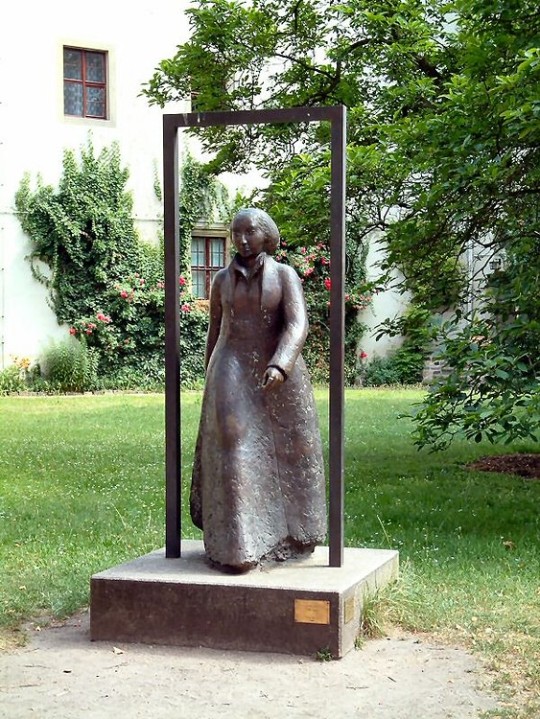
Ten Women of the Protestant Reformation
Women played a vital role in the Protestant Reformation (1517-1648) not only by supporting the major reformers as wives but also through their own literary and political influence. Their contributions were largely marginalized in the past, but modern-day scholarship has highlighted women's roles and established their importance in spreading the reformed vision of Christianity.
Prior to the Reformation, the lives of women were ordered by the Catholic Church, the patriarchal nobility, and their husbands or sons. Women in the Middle Ages held jobs and some even assumed control of the family business after their husbands' death, but their opportunities were still limited, with rare exceptions, to becoming a wife and mother or a nun. After the Reformation began, women found new freedoms – as well as uncertain futures – as monasteries and nunneries were closed, eliminating the option of monastic life, while also allowing women who had been forced to become nuns to now choose their own path.
The Reformation affected women's lives throughout Europe and beyond and, as it was not a cohesive movement, different Protestant sects regarded women in different ways. The followers of Martin Luther (l. 1483-1546) believed that a woman's place was in the home, caring for the children, and those who supported the views of Huldrych Zwingli (l. 1484-1531) felt likewise, while the Anabaptists, who had emerged as their own sect from Zwingli's reforms, elevated women's status to positions of authority as ministers and prophets.
Even within more restrictive Protestant sects, however, women still found they had more of a voice and greater opportunities than before. Luther's wife, Katharina von Bora, was a former nun who married, raised children, brewed her own beer, and ran a farm, while Katharina Schutz, wife of reformer Michael Zell (d. 1548), became far more famous than her husband for her written works. The Protestant Reformation encouraged literacy because, no matter the sect, the new teaching emphasized the importance of reading the Bible for oneself, and so girls were now allowed an education whereas, previously, educating women was considered a waste of time.
Ten Women of the Reformation
The ten women on this list are only a very small sampling of the many who contributed to the Reformation and are mainly drawn from the Lutheran and Reformed sects as their lives are among the best documented:
Katharina von Bora (l. 1499-1552)
Argula von Grumbach (l. 1490 to c. 1564)
Anna Reinhart (l. c. 1484-1538)
Katharina Schutz (l. 1497-1562)
Marguerite de Navarre (l. 1492-1549)
Marie Dentiere (l. c. 1495-1561)
Katharina von Zimmern (l. 1478-1547)
Jeanne d'Albret (Joan III of Navarre, l. 1528-1572)
Anna Adischwyler (l. c. 1504-1564)
Olympia Fulvia Morata (l. 1526-1555)
These women did not suffer as greatly as many others who took a stand for their religious convictions but often endured hardships for their faith, refusing to compromise, even when doing so would have made their lives easier.
Continue reading...
16 notes
·
View notes
Text

James Renwick, the Covenanting minister, issued his declaration on May 28, 1685.
I said before how much I dislike covering The Killing Times, it is one of the most troubled periods of Scottish History, I am beginning to understand it the more I read it and although I am not a religious man I have to respect the men and women who died for the sake of theirs on all sides, James Renwick was one such man, this is an abridged version of his story
James Renwick had been 18 years old when he saw Donald Cargill executed in 1681. By this time, the Covenanters were meeting together as societies for fellowship, but after Cargill’s death they had no ministers. Cargill’s death made Renwick determined to join these United Societies, and in 1682 they sent him to Holland to train to become a minister. Renwick was ordained as a minister in Holland in 1683, came back to Scotland and began preaching. He spent the next six years preaching and trying not to be caught. In one year, he baptised 600 children.
From 1682 onwards, the persecution against the Covenanters became worse than ever. Claverhouse was sent to fine and arrest Covenanters. By now, Covenanters were being executed just because of their religious beliefs. In 1684, Renwick and the United Societies wrote an Apologetical Declaration which said that they would punish anyone who continued to persecute them. From then on, anyone could be shot on the spot by the government if they wouldn’t take an oath to say that this declaration was wrong. In 1685, Charles II died and his Roman Catholic brother, James VII (known as James II in England) became king. Renwick and the Covenanters wrote a second Sanquhar Declaration in which they rejected James’ right to be king. James had already been persecuting the Covenanters before he became king and had been one of those excommunicated by Donald Cargill. As soon as he came to the throne, James began to take away the laws stopping Catholics from meeting to worship. He offered four indulgences, which many of the Presbyterians accepted. The Covenanters continued to refuse them however. Now, anyone who went to a conventicle could be killed. The years from 1685 to 1688 were known as the Killing Times, during which a couple of hundred Covenanters, young and old, were either shot in the fields without a trial or executed after having had a trial. Those who died included John Brown, The Two Margarets and George Wood.
Renwick kept on preaching but was finally caught in January 1688. When the captain of the troops that caught him saw how young he was, he said: “What! Is this the boy Renwick that the nation has been so much troubled with?”
On the day of his execution, some people tried to get Renwick to pray for the king. But he replied, “I am within a little while to appear before Him who is King of kings, and Lord of lords, who shall pour shame, contempt, and confusion upon all the kings of the earth who have not ruled for him”.
His last words were, “Lord, into thy hands I commend my spirit, for thou hast redeemed me, Lord God of truth.” He was then hanged in the Grassmarket in Edinburgh – the last Covenanter martyr to be publicly executed. The date was 17 February 1688 – 3 days after his twenty-sixth birthday.
12 notes
·
View notes
Text
Pope Francis told CBS in an interview airing Monday night that the solution to record numbers of undocumented immigrants arriving at the U.S.-Mexico border was "to open the doors to migration."
WHY IT MATTERS: President Biden has in response to the migrant crisis this year taken a tougher stance on the border, which Axios' Stef Kight notes has become one of Democrats' most vulnerable issues in the 2024 election cycle.
• The president told Univision last month that he was exploring whether he had the power to shut down the border without congressional authorization and that he planned to limit crossings.
DRIVING THE NEWS: CBS' Norah O'Donnell noted during their hour-long interview in Vatican City that this had been the discussion in the U.S. as large numbers of mothers and children fleeing violence walked "thousands of miles" to the border with their families for a better life.
• The pope replied that migration was the solution.
• "For an immigration policy to be good, it must have four things: for the migrant to be received, assisted, promoted and integrated. This is what is most important, to integrate them into the new life," he said.
• Representatives for the Biden administration did not immediately respond to Axios' request for comment.
ZOOM IN: The pope also called Texas officials' attempts to shut down a Catholic charity that offers undocumented immigrants humanitarian assistance at the state's border with Mexico "sheer madness."
• "Unfortunately, we have gotten to a point of no return. It's sad, but that's what it is," the pontiff said. "Climate change at this moment is a road to death."
• He said he blamed wealthy countries in "great measure" for the situation because of their economic strength and for having energy policies focused on fossil fuels. "They are the countries that can make the most difference," he said.
• When asked what he thought of climate change deniers, Francis responded: "There are foolish people, and even if you show them the statistics, still the fool will not believe."
• He said generally this was either "because they don't understand the situation or out of a vested interest," but "climate change is real. The warming of the Earth has already increased by 2°. That is a lot."
OF NOTE: During the interview, O'Donnell said she understood that Francis was against the Catholic Church having women as priests, but that he was studying the notion of women as deacons and asked if he's open to this.
• "If it is deacons with Holy Orders, no," he replied. "But women have always had ... the function of deaconesses without being deacons. Women are of great service as women, not as ministers ... within the Holy Orders."
GO DEEPER: Biden takes another step to fast-track asylum process for border crossers
#us politics#news#axios#2024#Pope Francis#catholic church#catholicism#organized religion#cbs#biden administration#president joe biden#immigration#immigrants#us mexico border#Norah O'Donnell#texas#mexizo#climate change#climate crisis#global warming
10 notes
·
View notes
Text
One of the most obvious shortcomings the church needs to repent of is its failure to take seriously its mistreatment of its own people. It has become terribly clear that no branch of the church is free of the abuse of vulnerable people by the very clergy charged with their care. Every Roman Catholic I know is painfully aware of the horrors of the abuse scandals revealed in the last twenty years: not only the fact of abuse itself but its cover-up by Catholic leaders at all levels of the church hierarchy. More recently, the Southern Baptist Convention has been in the news for that body’s failure to suspend abusive pastors. Mainline Protestants sometimes like to think that our social liberalism or embrace of women in ministry prevent abuse, but they do not. Both the Episcopal Church and the Anglican Church of Canada have recently been rocked by allegations of bishops’ misconduct and the failure of church institutions to respond appropriately upon being informed of abuse. It may well be, as is sometimes alleged, that churches have no higher rates of abuse than other organizations that involve work with vulnerable or marginalized populations. But “we’re no worse than anyone else” is hardly a compelling message for the church to share with an increasingly skeptical world. For abuse not only damages those subjected to it, but it also turns others away from the church in moral revulsion. This means people are rejecting Christ because of what has been done in his name.
10 notes
·
View notes
Text
Today in Christian History

Today is Friday, February 23rd, 2024. It is the 54th day of the year in the Gregorian calendar; Because it is a leap year, 312 days remain until the end of the year.
1680: Death of Thomas Goodwin (pictured above), a notable English Congregational Nonconformist preacher. He had been a member of the Westminster Assembly of 1650, and author of many biblical and theological works. His last words were: “Ah, is this dying? How I have dreaded as an enemy this smiling friend.”
1719: Death in Tranquebar, India, of thirty-six-year-old Bartholomew Ziegenbalg, missionary to India, who has established a seminary, translated the New Testament into Tamil, converted and baptized over two hundred Indians, and constructed a church building. At one point he had been imprisoned by the Dutch who feared his preaching would antagonize the Hindus they administered.
1758: Jonathan Edwards receives a smallpox vaccination from which he contracts the disease. He will die in March.
1819: A new church at Friedensthal on St. Croix Island is consecrated to the worship of the living God by Moravians and their converts. The congregation is so numerous not a third part can get inside the doors.
1846: Following the outrage raised by his publication of “Remarks on Certain Passages in the Thirty-Nine Articles,” in which he has tried to reconcile Church of England teaching with Roman positions, and his migration to the Roman Catholic church, John Henry Newman leaves Oxford for good.
1855: John Bright, a Quaker-born Christian parliamentarian in England, makes an eloquent speech against the Crimean War. Its most famous line is, the “Angel of Death has Been Abroad.”
1918: The body of the Orthodox priest George Porgachevsky is found about a mile and a quarter from the village of Ivanovskoye, Amur region. His head is crushed and he has two bayonet wounds in his stomach. The Soviets had arrested him thirteen days earlier.
1925: Death in Alexandria, Virginia, of Kate Waller Barrett, an American physician, who, as a single mother and member of the Episcopal Church, co-founded the National Florence Crittenton Mission financed by wealthy Charles Nelson Crittenton. She had secured for the mission the first-ever federal charter for a charitable organization.
1929: Lindel Tsen is consecrated as Assistant Bishop of Honan, the first Chinese bishop in an established Anglican diocese. He will become the principal leader of Chinese Anglicanism in the mid-20th century and suffer persecution at the hands of the government.
1934: Death in Baltimore, Maryland, of Peter Ainslie, a Disciples of Christ minister, ecumenical leader, and author of The Scandal of Christianity, a sharp rebuke of divisions among Christians.
1951: Death of Zhang Boling (Chang Po-ling), a prominent Chinese Protestant layman and educator. He had been affiliated with the YMCA, founded Nankai University, accepted women for education, and promoted athletic activities. Because of the school’s patriotism the Japanese had bombed and burned it and succeeding political changes made him unwelcome.
6 notes
·
View notes
Text
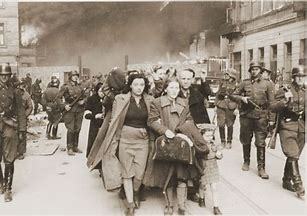
Warsaw
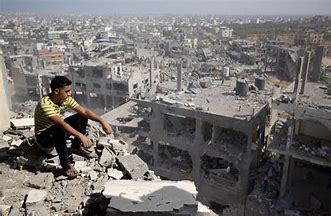
Gaza City
While Gaza Burns
(A different take on the Middle East)
Stephen Jay Morris
10/10/2023
©Scientific Morality
If you should come across two bears in the wild, fighting each other, you best run away as fast as you can. Regardless of which bear wins, you too will die, if you stick around.
This adage I heard many years ago. What does it mean? It means that when two evil forces are fighting each other, you don’t have to take a side. Let’s say that White nationalists are having a war with the Taliban. Would I support either of the two?
So, now—let me get this out the way, Okay? Fuck Hamas! Fuck Benjamin Netanyahu! Got it? Hamas wants to make Palestine an Islamic state. Netanyahu wants to make Israel a Jewish Theocracy. He wants to get rid of all Arabs living in Israel. He is a Jewish separatist; a lukewarm Rabbi Kahani.
As it stands now, Israel is a secular democracy. The Likud Party is a war mongering, right wing party, one of the many parties in Israel. That is Prime Minister Benjamin Netanyahu’s party. They are a bigger threat than Hamas. Ask the thousands of Israeli protesters who wanted him ousted as Prime Minister. He wants to weaken the Israeli Supreme Court. Essentially, he wants to be Israel’s dictator.
Meanwhile, in Gaza City. Hamas—the flunkies of Iran—is putting innocent Palestinians at risk by breaching Israel’s border and kidnaping Israeli women and children, beating elderly Jews, and raping female Jews. Oh, did you see the video of a jihadist trying to behead a Jew with a backhoe? He couldn’t get the job done. I guess he couldn’t find an ax. I saw this video on mainstream media. Man, Israeli propaganda is a ratings grabber! What about the videos on how when an Israeli bomb falls on a building in Gaza, it crushes the occupants to death. The B.B.C. might show you that one. Yeah, those videos shown on major networks are supposed to enrage you, to make you think, “Those Palestinians are vicious animals! Kill them all!”
Those videos don’t faze me at all. I know war propaganda when I see it. Doesn’t mean I am a heartless sociopath. I am just a cynical, 69-year-old with a callous heart after having seen how propaganda works.
Now I want to say a few words about the Authoritarian Left who support this Islamic group. Are you fucking nuts!?! The Left is supposed to be anti-religion, no matter whom they are! A lot of Tankies and Trots support Islamic groups because they represent oppressed, Third World people opposed to American Imperialism. Are you fucking stupid!? Islamic groups will oppress their own people! As an Anti-Authoritarian Leftist, I hate the religious Right, whether they be Jewish, Christian, Islamic or even Hindu!
You American, Right wing Chuds, are a hopeless case. Of course, you support Israel! In your Bible it says that Israel is where Jesus will be when he returns. It will be the headquarters of Christianity and Israel will become be a Christian state. Oh, speaking of Right wing dumbasses, Donald Trump couldn’t stand the fact that Israel was getting all the news coverage lately. So, he had to insert himself by jumping on the Congressional Republicans’ bandwagon and declaring that President Biden is at fault for inflaming the Israel/Palestine war. Shut up, Donald! Go away!
How will this conflict end? I don’t know! However, nothing good will come out of it, of that I am certain. Both sides will lose. Oh, one question I have: What happened to Israel’s Iron Dome? Somebody forgot to plug it in? I wouldn’t feel too sorry for Israel; they do have the Nuclear Bomb.
I said it before, and I’ll say it again: Being Jewish is not my ideal race for being. I wish I had been born Italian; Irish; Shit! Even Polish Catholic! Am I self-hating Jew? No, not really. In the early 20th Century, in New York City, there were Jewish Anarchists’ newspapers written in Yiddish! That’s the Jewish identity I crave. Did you know there are more Jews in the United States than in Israel? There are 7,300,000 in the U.S. and 7,106,000 in Israel. I guess that this diaspora is too cool to Aliyah to the holy land of Israel. What does that mean? Look it up.
P.S. Dear Lefties: Stop calling Israel an Apartheid state! Palestinians are a nationality, not a race of people. Racially, Arabs and Jews are Semitic. As far as Indigenous Americans go, they were and are victims of American apartheid, as are Mexicans, Asians, and Blacks. But, Israel and Arabs? No such deal.
חופש לכל האנשים על פני כדור הארץ
#stephenjaymorris#american politics#youtube#anti zionisim#israel#free palestine#jewish history#anarchopunk#anarchocommunism#anarcho capitalism#Anarcho-feminism
12 notes
·
View notes
Photo

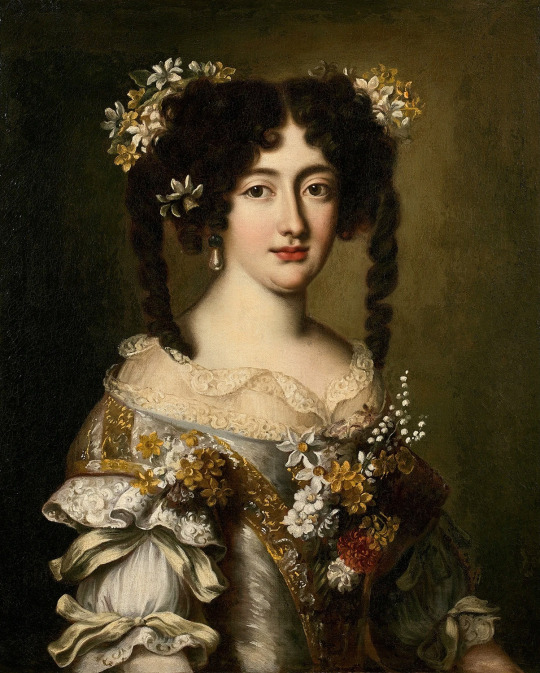
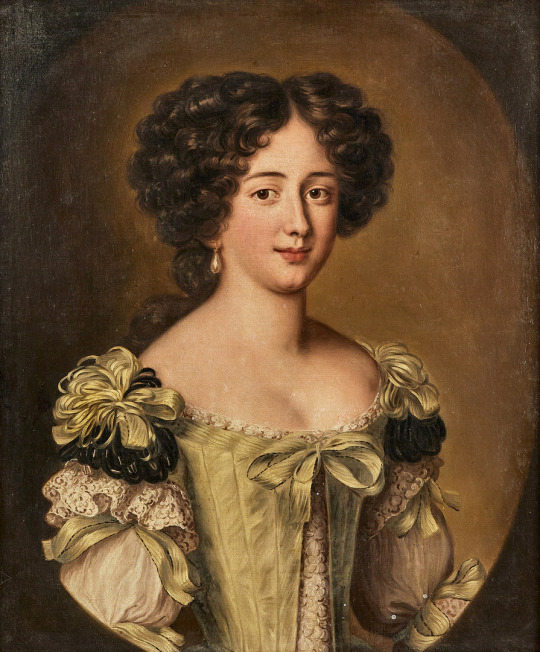
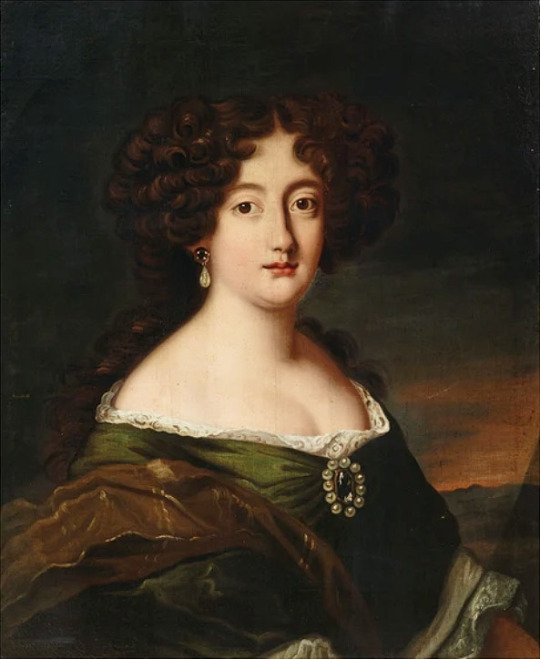


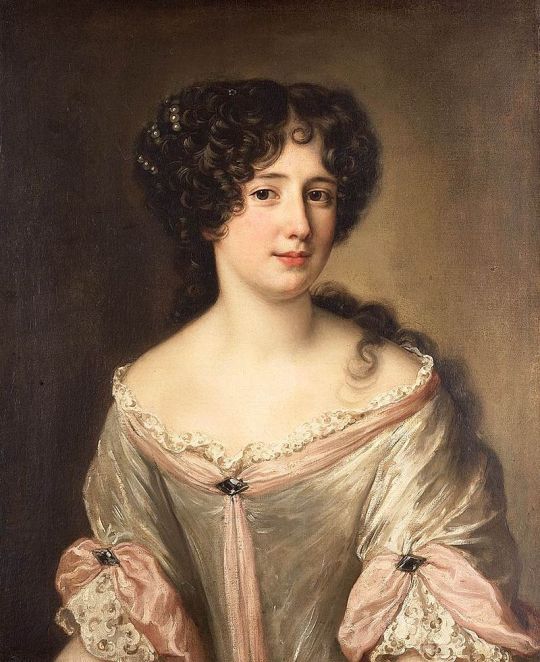

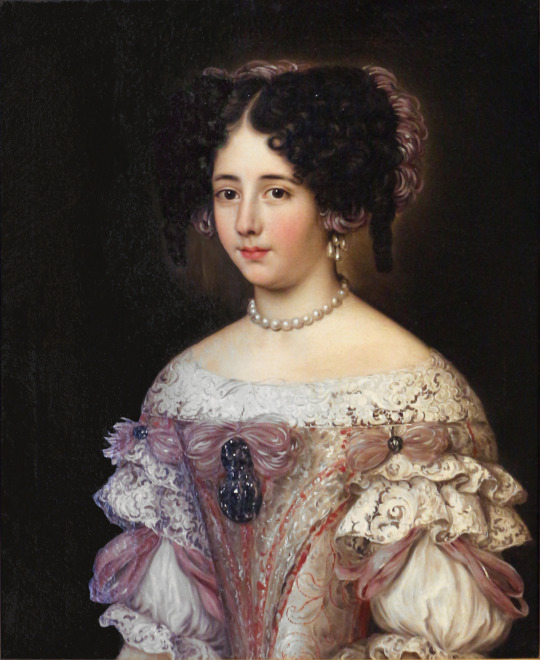
Jacob Ferdinand Voet - different portaits of the Mazarinettes, the collective name which indicated the seven nieces of Cardinal Jules Mazarin (Giulio Mazzarino), chief minister to the Kings Louis XIII and Louis XIV of France.
Their names were: Laura and Anna Maria, daughter of Laura Margherita Mazzarino; Laura, Olimpia, Maria, Ortensia and Maria Anna, daughter of Girolama Mazzarino.
Mazarin wished to establish a dynasty in France and secure his legacy through advantageous marriages, but could have no children of his own as a member of the Catholic clergy. He also wanted to surround himself with his family, in whom he could confide, as he had many enemies at court.
The French royal family supervised the education of the girls. The Queen Regent, Anne of Austria, allowed for the younger children to be educated with the future king Louis XIV and his younger brother, Monsieur Philippe, Duke of Anjou.
Cardinal Mazarin arranged advantageous marriages for his nieces with powerful French and Italian aristocrats, and gave large dowries to their husbands in order to overcome their reluctance to marry women of lower origins. Many of them, in any case, will live more adventurous lives, becoming estimated women of letters or abandoning violent husbands and becoming lovers of kings and other rulers.
#Jacob Ferdinand Voet#flemish art#italian history#Mazarinettes#Marie Mancini#Hortense Mancini#Laura Martinozzi#Olympia Mancini#Anne Marie Martinozzi#Laura Mancini#french history#women history#17th century#17th century history#baroque#Rome
31 notes
·
View notes
Text
SAINT OF THE DAY (September 27)
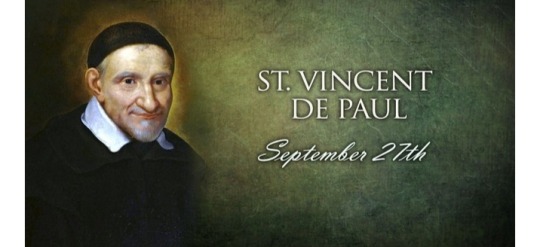
On September 27, the Catholic Church remembers Saint Vincent de Paul, the 17th-century French priest known as the patron of Catholic charities for his apostolic work among the poor and marginalized.
During a September 2010 Angelus address, Pope Benedict XVI noted that St. Vincent “keenly perceived the strong contrast between the richest and the poorest of people, and was encouraged by the love of Christ to organize permanent forms of service to provide for those in need."
Vincent was born on 24 April 1581 in the village of Pouy, in the Province of Guyenne and Gascony, the Kingdom of France, to peasant farmers.
Born to a poor family in the southwest of France, he showed his intellectual gifts from a young age, studying theology from around age 15.
He received ordination as a priest in the year 1600 and worked as a tutor to students in Toulouse.
During a sea voyage in 1605, Vincent was seized by Turkish pirates and sold into slavery.
His ordeal of captivity lasted until 1607, during which time the priest converted his owner to the Christian faith and escaped with him from Tunisia.
Afterward, he spent time studying in Rome and, in a striking reversal of fortune, served as an educator and spiritual guide to members of an upper-class French family.
Although Vincent had initially begun his priesthood with the intention of securing a life of leisure for himself, he underwent a change of heart after hearing the confession of a dying peasant.
Moved with compassion for the poor, he began undertaking missions and founding institutions to help them both materially and spiritually.
The one-time slave also ministered to convicts forced to serve in squalid conditions as rowers aboard galley ships.
Vincent established the Congregation of Priests of the Mission in 1625, as part of an effort to evangelize rural populations and foster vocations to remedy a priest shortage.
Not long after this, he worked with the future Saint Louise de Marillac to organize the Daughters of Charity, the first congregation of women religious whose consecrated life involved an extensive apostolate among the poor, the sick, and prisoners.
Under Louise’s direction, the order collected donations, which Vincent distributed widely among the needy.
These contributions went toward homes for abandoned children, a hospice for the elderly, and an immense complex where 40,000 poor people were given lodging and work.
Vincent was involved in various ways with all of these works, as well as with efforts to help refugees and to free those sold into slavery in foreign lands.
Though admired for these accomplishments during his lifetime, the priest maintained great personal humility, using his reputation and connections to help the poor and strengthen the Church.
Doctrinally, Vincent was a strong opponent of Jansenism, a theological heresy that denied the universality of God’s love and discouraged reception of the Eucharist.
He was also involved in the reform of several religious orders within France.
Vincent de Paul died on 27 September 1660, only months after the death of St. Louise de Marillac in March of the same year.
He was beatified by Pope Benedict XIII on 13 August 1729. He was canonized by Pope Clement XII on 16 June 1737.
In 1835, the French scholar Blessed Frederic Ozanam took him as the inspiration and namesake for the Society of Saint Vincent de Paul, a lay Catholic organization working for the relief of the poor.
Saint Vincent de Paul has become known as the “The Apostle of Charity” and “Father of the Poor.”
His contributions to the training of priests and organizing parish missions and other services for the poor shaped the Church's role in the modern world.
#Saint of the Day#Saint Vincent de Paul#Congregation of Priests of the Mission#Society of Saint Vincent de Paul
6 notes
·
View notes
Text
COLUMBIA HEIGHTS, Minn. (AP) — For more than two hours on a Sunday afternoon, the Rev. Gustavo Castillo led the Pentecostal congregation he’s been growing in this Minneapolis suburb through prayer, Scriptures, rousing music and sometimes tearful testimonials.
But it all may end soon. A sudden procedural change in how the federal government processes green cards for foreign-born religious workers, together with historic highs in numbers of illegal border crossers, means that thousands of clergy like him are losing the ability to remain in this country.
“We were right on the edge of becoming permanent residents, and boom, this changed,” Colombia-born Castillo said as his wife rocked their 7-month-old boy, a U.S. citizen by birth. “We have done everything correctly, from here onward we believe that God will work a miracle. We don’t have any other option.”
To become permanent U.S. residents, which can eventually lead to citizenship, immigrants apply for green cards, generally through U.S. family members or employers. A limited number of green cards are available annually, set by Congress and separated into categories depending on the closeness of the family relationship or the skills needed in a job.
Citizens of countries with disproportionately high numbers of migrants are put in separate, often longer green card queues. Currently, the most backlogged category is for the married Mexican children of U.S. citizens – only applications filed before March 1998 are being processed.
For faith leaders, the line historically has been short enough to get a green card before their temporary work visas expired, attorneys say.
That changed in March. The State Department announced that for nearly seven years it had been placing in the wrong line tens of thousands of applications for neglected or abused minors from Guatemala, Honduras and El Salvador, and would now start adding them to the clergy queue. Since the mid-2010s, a surging number of youth from these countries have sought asylum after illegally crossing into the U.S.
This change means that only applications filed before January 2019 are currently being processed, moving forward the Central American minors by a few months but giving clergy with expiring visas, like Castillo, no option but to leave their U.S. congregations behind.
“They’re doing everything they’re supposed to be doing and all of a sudden, they’re totally steamrolled,” said Matthew Curtis, an immigration attorney in New York City whose clients, like an Israeli rabbi and a South African music minister, are running out of time. “It’s like a bombshell on the system.”
Attorneys estimate so many people are now in the queue that the wait is at least a decade long, because only 10,000 of these green cards can be granted annually.
Curtis’ firm advises potential clergy applicants that “there is no indication when you can receive a green card.”
That’s likely to dissuade religious organizations from hiring foreign workers precisely when they’re most needed because of the growing demand for leaders of immigrant congregations who can speak languages other than English and understand other cultures.
“There’s a comfort to practice your religion in your native tongue, in someone close to your culture celebrating Mass,” said Olga Rojas, the Archdiocese of Chicago’s senior counsel for immigration. The U.S. Catholic Church has also turned to foreign priests to ease a shortage of local vocations.
At one Chicago-area parish that’s been helping with this year’s surge of new arrivals from the border, two Mexican religious sisters have started ministries for women in the shelters as well as English classes, Rojas said.
“These two sisters know they won’t get green cards,” she added, and they expect to lose other religious sisters and brothers who are teachers, principals and serve in other key roles. “That’s catastrophic.”
Those from religious orders with vows of poverty, like Catholic nuns and Buddhist monks, are especially hard hit, because most other employment visa categories require employers to show they’re paying foreign workers prevailing wages. Since they’re getting no wages, they don’t qualify.
Across all faith traditions, there are few options for these workers to continue their U.S.-based ministry, attorneys say. At a minimum, they would need to go abroad for a year before being eligible for another temporary religious worker visa, and repeat that process, paying thousands in fees, throughout the decade – or for however long their green card application stays pending.
“A big concern is that leaving is not really viable. The church will replace the pastor or shut down, it’s too much instability,” said Calleigh McRaith, Castillo’s attorney in Minnesota.
Being in limbo is challenging for the affected religious workers, including Stephanie Reimer, a Canadian serving a nondenominational Christian youth missionary organization in Kansas City. Her visa expires in January.
“I’ve done a lot of praying,” she said. “There are days when it feels overwhelming.”
Martin Valko, an immigration attorney in Dallas whose clients include imams and Methodist pastors, said many rely on their faith to stay hopeful.
But realistic options are so few that the American Immigration Lawyers Association and faith leaders, like Chicago’s Catholic cardinal and coalitions of evangelical pastors, have lobbied the Biden administration and Congress to fix the problem.
Administrative solutions could include allowing religious workers to at least file for their green cards, so they can get temporary work authorization like those in other queues awaiting permanent residence.
The most effective and immediate fix would be for Congress to remove from this category the vulnerable minors’ applications, attorneys say. Despite being humanitarian, they make up the vast majority of the queue they share with religious workers, said Lance Conklin, a Maryland attorney who co-chairs the lawyer association’s religious workers group.
“They shouldn’t be pitted against each other in competition for visas,” said Matthew Soerens, who leads the Evangelical Immigration Table, a national immigrant advocacy organization.
Back at the Iglesia Pentecostal Unida Latinoamericana, Castillo said he has ministered to a family with two young children who survived the Darien Gap, a jungle in Central America favored by smugglers that’s among the most dangerous parts of migrants’ journeys, and a mother and daughter who said they came “through the hole” in the border wall.
“Some of them are in a better migration situation” than himself and his wife Yarleny, Castillo said. But he added that his call to minister to them is undaunted. “I serve God. He will take charge of these affairs while I lead those he has entrusted to me.”
That’s why, even as they face having to leave the country when their visas expire in February, the Castillos are fundraising to buy the building where they now rent worship space. They also regularly drive 10 hours to South Dakota, where they’re establishing another church.
“In this work, one is constantly helping destroyed migrant families,” Yarleny Castillo said. “And they need a space like this.”
5 notes
·
View notes
Text
My Journey from Protestantism to Catholicism: A Personal Reflection
It was a crisp Australian autumn morning in 1976 when I experienced a dramatic conversion to Protestantism. At the time, I had little knowledge of the specific beliefs and practices of the Protestant church. Little did I know that this moment would set me on a path that would span over 40 years, taking me from serving as an ordained Minister in Australia, the USA, and the UK, to where I find…
#catholic conversion#catholic conversion story#catholic reflections#journey#journey home#journey to catholicism#protestant to#protestant to catholic#protestant to catholic conversion#women minister becomes catholic
0 notes
Text
All Christian churches, no matter how liberal they present themselves now, never had trouble telling the difference between men and women before.

PORTLAND, Ore.— Something as small as signs that say "men" and "women" on the bathrooms in a house of worship can shut the door to trans people.
"For me as a non-binary person, I've been to so many churches where they don't have a bathroom that I feel like I can use," says AJ Buckley, an Episcopal priest in Portland, Ore. "And so I'll just not go to the bathroom there."
Churches are tasked with living out the Bible's message both from the pulpit and in the pews.
And it's hard to connect to spiritual concerns if people there to sing and pray literally can't be physically comfortable.
That's why Saint David of Wales Episcopal Church in Portland, where Buckley has been associate rector for the past year, has made changes like putting up signs that say anyone can use any bathroom, including pronouns on name tags and preaching to "siblings in Christ" rather than brothers and sisters.
"Sometimes we'll say, 'God loves you,' but then not live that out in the church always," Buckley says. "And so, having those things say you're actually wanted here, [means] we're excited that you're here."

Pro-trans voices are emerging within Christianity
Evangelical Christianity has played a big role in the political debate around transgender issues, and the spate of legislation it's led to. And so that position is widely known: God created humans, separated into male and female – categories that are innate and immutable.
But religions speak with more than one voice. And other Christians are using their sacred texts to embrace a broader understanding of gender.
Shannon TL Kearns is the first openly transgender man ordained in the Old Catholic Church, a denomination that split from Rome after the first Vatican Council in the 19th century. He's co-founder of QueerTheology.com, and author of the book In The Margins: A Transgender Man's Journey with Scripture.
"The world of gender in the Bible is much more complex than I was taught growing up as an evangelical," says Kearns, pointing to numerous stories of biblical figures transgressing gender norms.
"We have women who are judges. We have men who spend their time in the kitchen. There are eunuchs, which were considered this kind of other third gender," he says.
Many Christians are rethinking the biblical stories they think they already know
Theology is stories. And Kearns says figuring out the Bible's message on trans people is partly about rediscovering these particular stories. But, in a larger sense, it's about asking harder questions of the stories Christians think they already know.
For example, in Genesis, angels come to Sodom and Gomorrah, and the townspeople threaten to rape them. The destruction of those cities is often seen as God's condemnation of homosexuality. But it could be read as a lesson in welcoming the stranger.
"When we look at a passage like Sodom and Gomorrah, we're looking at the places where — where might we still be inhospitable to people today?" asks Kearns. "Are we benefiting from systems that are hurting other people?"
Sometimes, showing hospitality is as easy as a sign on a bathroom door. And sometimes it's harder. Not every congregation, not every Christian, welcomes these changes. Theologian and ordained Baptist minister Robyn Henderson-Espinoza says conflict is not new to Christianity and that it's central to understanding the story of Jesus.
"I follow the story of a brown, Palestinian Jew who was executed by the Roman empire," says Henderson-Espinoza. "And that story is painful."
But Henderson-Espinoza, author of the book Body Becoming: A Path to Our Liberation, says this re-centering of the story from the point of view of the powerless rather than the point of view of the powerful is the work of Christianity. And that re-centering has implications for trans people today.
"I think that's how we bring heaven to Earth: Having these hard conversations and creating more relationships, and creating more opportunities to be in relationship with difference."

Trans people read themselves into scripture the same way all people see themselves in biblical characters
If you look in the Bible, stories of difference are there as well says theologian Kearns. The arc of scripture bringing the most marginalized people to the center has always been there. But he's not surprised it hasn't always been told that way.
"White, cisgender heterosexual men — they're reading from their specificity and particularity and calling it universal. And that's the real damage," Kearns says.
Kearns says it's not that reading from a particular perspective, a particular experience, is bad — it's how scripture has always been read and interpreted. People just need to be aware of what they're doing. And to expand the conversation to include all voices.
"I think that we all read ourselves into scripture," Kearns
says. "I think the kicker is that folks from marginalized communities are being honest about the fact that that's what they're doing."
Trans Christians practice a faith that fits their bodies
Good narratives survive because they welcome a range of readers into their world.They don't define meaning — they reveal it for those who enter the story.
Austen Hartke, a Lutheran theologian and founder of the Transmission Ministry Collective, asks the question, "If you believe, like I do, that God made me trans on purpose, then what does that mean that I am allowed to do to steward my body, to live a healthy and full life?"
Hartke, who's also the author of Transforming: The Bible and the Lives of Transgender Christians, says, "In the same way that if God made somebody nearsighted, they're allowed to get glasses."
He says it's part of Jesus's call to abundant life. It's not desecration; it's co-creation. Holy work.
"Yes, our bodies are temples," Hartke says. "But temples change."
And Hartke says the blueprint for that change is in the text.

"Even though Genesis One talks about binaries in the world, we know that those binaries aren't as clean cut as they are in this one piece of writing."
It's not just man and woman, land and water.
"So for instance," he says, "God creates the day and the night — it says nothing about dawn or dusk."
But these in-between places exist. Hartke says there's a richness to them and to the theology that emerges from them. Because they tell a fuller story of existence in this holy world.
"If we say God is the alpha and the omega, we don't mean God is just A and Z," Hartke says. "We mean God is all."

8 notes
·
View notes
Text



James Renwick, the Covenanting minister, issued his declaration on May 28th, 1685.
The Killing Times, it is one of the most troubled periods of Scottish History, I am beginning to understand it the more I read it and although I am not a religious man I have to respect the men and women who died for the sake of theirs on all sides, James Renwick was one such man, this is an abridged version of his story, maybe our member Ethyl Smith shall give a much more detailed post about James Renwick, she is much more qualified than I am.
James Renwick had been 18 years old when he saw Donald Cargill executed in 1681. By this time, the Covenanters were meeting together as societies for fellowship, but after Cargill’s death they had no ministers. Cargill’s death made Renwick determined to join these United Societies, and in 1682 they sent him to Holland to train to become a minister. Renwick was ordained as a minister in Holland in 1683, came back to Scotland and began preaching. He spent the next six years preaching and trying not to be caught. In one year, he baptised 600 children.
From 1682 onwards, the persecution against the Covenanters became worse than ever. Claverhouse was sent to fine and arrest Covenanters. By now, Covenanters were being executed just because of their religious beliefs. In 1684, Renwick and the United Societies wrote an Apologetical Declaration which said that they would punish anyone who continued to persecute them. From then on, anyone could be shot on the spot by the government if they wouldn’t take an oath to say that this declaration was wrong. In 1685, Charles II died and his Roman Catholic brother, James VII (known as James II in England) became king. Renwick and the Covenanters wrote a second Sanquhar Declaration in which they rejected James’ right to be king. James had already been persecuting the Covenanters before he became king and had been one of those excommunicated by Donald Cargill. As soon as he came to the throne, James began to take away the laws stopping Catholics from meeting to worship. He offered four indulgences, which many of the Presbyterians accepted. The Covenanters continued to refuse them however. Now, anyone who went to a conventicle could be killed. The years from 1685 to 1688 were known as the Killing Times, during which a couple of hundred Covenanters, young and old, were either shot in the fields without a trial or executed after having had a trial. Those who died included John Brown, The Two Margarets and George Wood.
Renwick kept on preaching but was finally caught in January 1688. When the captain of the troops that caught him saw how young he was, he said: “What! Is this the boy Renwick that the nation has been so much troubled with?”
On the day of his execution, some people tried to get Renwick to pray for the king. But he replied, “I am within a little while to appear before Him who is King of kings, and Lord of lords, who shall pour shame, contempt, and confusion upon all the kings of the earth who have not ruled for him”.
His last words were, “Lord, into thy hands I commend my spirit, for thou hast redeemed me, Lord God of truth.” He was then hanged in the Grassmarket in Edinburgh – the last Covenanter martyr to be publicly executed. The date was 17th February 1688 – 3 days after his twenty-sixth birthday.
12 notes
·
View notes
Note
Will we see the 70 other disciples of Jesus in Season 3? Doesn't the bible suggest that the number of disciples Jesus has is closer to 100 than it is to 12?
I don't know if or how the show will do it, but you're right, the number of disciples WAS actually quite a lot!
The 12 were chosen (no pun intended, lol) by Christ to specifically be His ministers in the care of what would become the new Church, which was comprised at the time of the steadily growing groups of disciples, some of whom traveled with Him, and some of whom were located all over the map in places He visited.
In Luke 6:13, Christ calls His group of "disciples", or "followers" and chooses the 12, whom He names "Apostles", which is a Greek term meaning "one who is sent off", someone who is directly sent from the source. "Apostles are people on a mission to accomplish something, while disciples are people following and learning from a teacher or leader." ~ an article I found about it ~ So the disciples were those who followed and learned from Him, and the Apostles were those He Himself chose for the mission of calling and caring for more followers. You can refer to the 12 as either Apostles or disciples, both are correct. Different denominations will define these slightly differently, but I think this is a pretty general distinction.
And in Luke 10:1, Christ picks out 72 of His disciples, His followers, and sends them out two by two as heralds of their King, sort of like early missionaries. (Some denominations refer to them as apostles because of this.) Because He was cool like that, He'd find something for EVERYONE to do, all were included. I love how that's depicted in the show. And later in Luke 10:17, we see them returning and excitedly telling Him about how they were able to help people! How they could exorcise demons without any of the extensive Temple training, they just had to invoke His Holy Name! They were good, simple people, made childlike again in their love for Him, and excitement at knowing Him, and that must have been so cool to them. It must have made Christ so happy to watch them and listen to them, and the show depicts that. AAAGGGHHH, I love it, I can't even, jklhhgfdssasndkdiehxb---
So, ANYWAY, Christ had many followers, men, women, and children, and chose these twelve specifically to go out after He had finished His earthly work, and minister "in Persona Christi", "in the Person of Christ", meaning that they operate not in His place, as in the Old Covenant, but in His Person.
This is why Catholics use the term "in Persona Christi" to refer to a priest fulfilling his ministry, and is also part of what we mean by "Apostolic Succession". The Holy Spirit has anointed the Apostles as the original priests of the Church, and that is carried on this day.
Their mission as priests is to surrender themselves completely to Christ until they are windows into the world through which Christ shines, through which He can use their voices and hands to teach and guide us. This is why it is such a heart-wrenching tragedy that Judas and many other chosen priests throughout history, to this day choose to follow the voices of Satan and self, and become corrupt. Because of what Christ holds out to them, what He means for them to be.
Going literally off of the above definitions, there aren't Apostles nowadays, but again, Apostolic Succession, the sacred tradition of the faith passed on from the original Apostles, whose work spreading the gospel and taking care of the Church is continued by missionaries and clergy. There are disciples only in the loose sense of those who wish to follow and learn from the teachings of Christ, since we can't meet and interact with Him in human form until He comes back, like He promised He would. And again, different denominations might describe this differently, but I hope this was helpful.
The show seems to be focusing on "main plot points" so far, so I don't know how deeply they will go into a lot of this, but I'm excited to see where it goes!
They also seem to be trying to take a C. S. Lewis' Mere Christianity-like approach to inter-denominational issues, asking "what do we as Christians, followers of Christ, have in common?", and then focusing on that, and I deeply appreciate it. I can't imagine that the Prince of Peace and Source of Love is happy about infighting.
Anyway, I hope that if I didn't answer your question, you at least got some interesting material for speculation?? And if you've read this far, then thank you for coming to my Ted talk, lolol.
Pax Christi everybody!
~ L. D.
#venttothevoid#good true beautiful#catholicism#love#holiness#saints#spilled ink#ted talks#lol#christianity#the chosen#the chosen season 3#the chosen tv show#c s lewis#mere christianity#apostle#disciple#follower of jesus#rant#apostolic#history#holy spirit#god#answered#family#get used to different#binge jesus
5 notes
·
View notes
Text
Macron calls for new world order. US sends additional forces to Middle East. IRGC bans communication devices. Zelensky Openly Campaigns for Dems. Telegram to allow the disclosure of user information
Lioness of Judah Ministry
Sep 24, 2024
Macron calls for new world order
Europe cannot be limited by the EU and NATO if the continent is to be peaceful, the French president has said
French President Emmanuel Macron has called for reform of the current “unjust” world order so that humans can coexist more peacefully. He outlined his vision on Sunday as part of the international ‘Imagining Peace’ gathering in Paris, which brought together leading political and religious figures. Speaking before the Catholic community of Sant’Egidio, Macron said “We must be imaginative enough to think about the peace of tomorrow, a peace in Europe in a new form.” If the European continent is to become more stable, everyone should acknowledge that it is “neither quite the EU, nor resolutely NATO,” he stated.
Israel Warns Civilians to Evacuate as Airstrikes Pound Hezbollah in Lebanon
Israeli warplanes targeted more than 300 Hezbollah positions in southern Lebanon on Monday and Israel warned civilians to evacuate the area as more intense strikes are on the way.
Lebanese officials said at least 182 people were killed and over 700 injured in the strikes, including “children, women, and paramedics.” The IDF said Hezbollah fired at least 150 rockets, missiles, and other projectiles at Israeli territory on Saturday and Sunday. Most of the attacks were launched from inside Lebanon and some of them reached further into Israel than previous Hezbollah attacks. “This morning, the IDF launched extensive, proactive airstrikes, based on precise intelligence, aimed at degrading the capabilities and infrastructure of the Hezbollah terrorist organization in Lebanon. This is infrastructure that Hezbollah has built over many years,” Israeli Defense Forces (IDF) spokesman Rear Adm. Daniel Hagari said in a statement on Monday.
Security cabinet said to make no new decisions, remains open to deescalation with Hezbollah
Citing sources familiar with last night’s security cabinet deliberations, the Ynet news site reports that it remains unclear if Israel is headed to an all-out war with Hezbollah after launching a major aerial offensive against the Lebanese terror group.
The sources say no new decisions were made during the meeting, while adding that Israel remains open to deescalating tensions with Hezbollah if the latter is willing to reach an arrangement. According to the news site, ministers said during the meeting that it was important Prime Minister Benjamin Netanyahu still go to the UN General Assembly in New York this week despite the fighting, saying it’s an important PR opportunity. Netanyahu’s office announced hours ago that the premier is indeed going, but is delaying his flight there until Wednesday night.
US sends additional forces to Middle East as tensions soar, Pentagon says
WASHINGTON, Sept 23 (Reuters) - The United States is sending a small number of additional troops to the Middle East given escalating tensions between Israel and Lebanon's Hezbollah, the Pentagon said on Monday, declining to specify the precise number or mission of the deployed forces.
"Out of an abundance of caution, we are sending a small number of additional U.S. military personnel forward to augment our forces that are already in the region," Air Force Major General Patrick Ryder, a Pentagon spokesperson, told reporters. After almost a year of war against Hamas in Gaza, Israel is shifting its focus to its northern frontier, where Hezbollah has been firing rockets into Israel in support of its ally Hamas.
1 note
·
View note
Text
Events 8.18 (before 1940
684 – Battle of Marj Rahit: Umayyad partisans defeat the supporters of Ibn al-Zubayr and cement Umayyad control of Syria.
707 – Princess Abe accedes to the imperial Japanese throne as Empress Genmei.
1304 – The Battle of Mons-en-Pévèle is fought to a draw between the French army and the Flemish militias.
1487 – The Siege of Málaga ends with the taking of the city by Castilian and Aragonese forces.
1492 – The first grammar of the Spanish language (Gramática de la lengua castellana) is presented to Queen Isabella I.
1572 – The Huguenot King Henry III of Navarre marries the Catholic Margaret of Valois, ostensibly to reconcile the feuding Protestants and Catholics of France.
1590 – John White, the governor of the Roanoke Colony, returns from a supply trip to England and finds his settlement deserted.
1612 – The trial of the Pendle witches, one of England's most famous witch trials, begins at Lancaster Assizes.
1634 – Urbain Grandier, accused and convicted of sorcery, is burned alive in Loudun, France.
1721 – The city of Shamakhi in Safavid Shirvan is sacked.
1783 – A huge fireball meteor is seen across Great Britain as it passes over the east coast.
1809 – The Senate of Finland is established in the Grand Duchy of Finland after the official adoption of the Statute of the Government Council by Tsar Alexander I of Russia.
1826 – Major Gordon Laing becomes the first European to enter Timbuktu.
1838 – The Wilkes Expedition, which would explore the Puget Sound and Antarctica, weighs anchor at Hampton Roads.
1848 – Camila O'Gorman and Ladislao Gutierrez are executed on the orders of Argentine dictator Juan Manuel de Rosas.
1864 – American Civil War: Battle of Globe Tavern: Union forces try to cut a vital Confederate supply-line into Petersburg, Virginia, by attacking the Wilmington and Weldon Railroad.
1868 – French astronomer Pierre Janssen discovers helium.
1870 – Franco-Prussian War: Battle of Gravelotte is fought.
1877 – American astronomer Asaph Hall discovers Phobos, one of Mars’s moons.
1891 – A major hurricane strikes Martinique, leaving 700 dead.
1903 – German engineer Karl Jatho allegedly flies his self-made, motored gliding airplane four months before the first flight of the Wright brothers.
1917 – A Great Fire in Thessaloniki, Greece, destroys 32% of the city leaving 70,000 individuals homeless.
1920 – The Nineteenth Amendment to the United States Constitution is ratified, guaranteeing women's suffrage.
1923 – The first British Track and Field championships for women are held in London, Great Britain.
1933 – The Volksempfänger is first presented to the German public at a radio exhibition; the presiding Nazi Minister of Propaganda, Joseph Goebbels, delivers an accompanying speech heralding the radio as the ‘eighth great power’.
1937 – A lightning strike starts the Blackwater Fire of 1937 in Shoshone National Forest, killing 15 firefighters within three days and prompting the United States Forest Service to develop their smokejumper program.
1938 – The Thousand Islands Bridge, connecting New York, United States, with Ontario, Canada, over the Saint Lawrence River, is dedicated by U.S. President Franklin D. Roosevelt.
0 notes